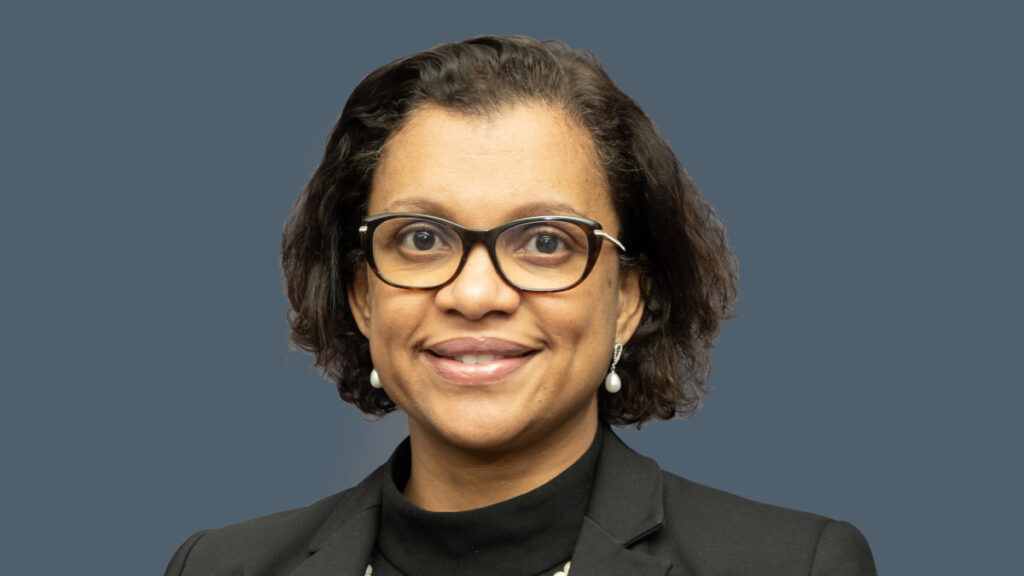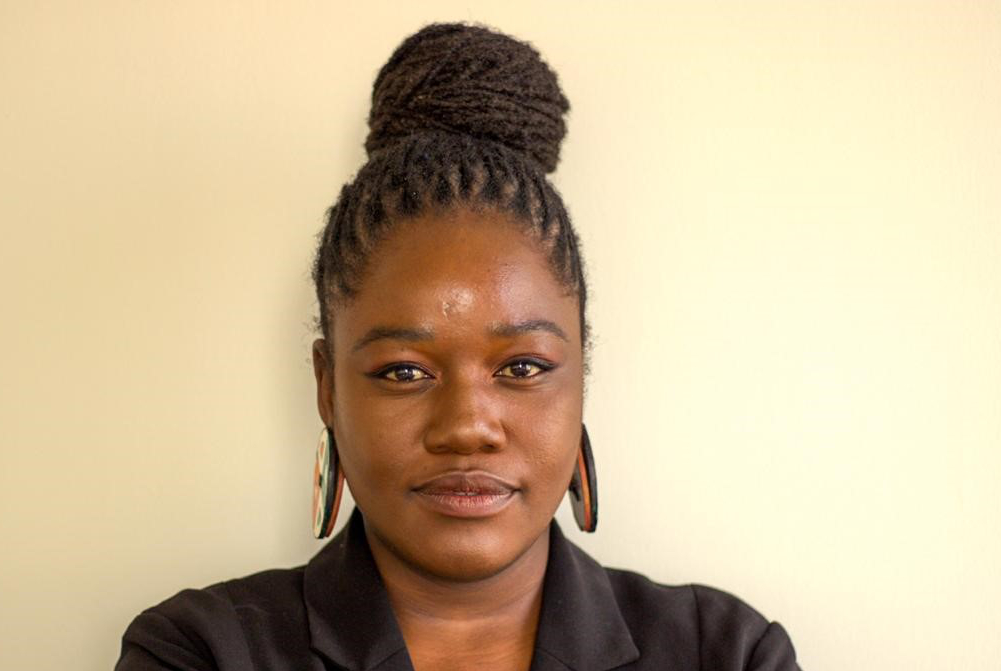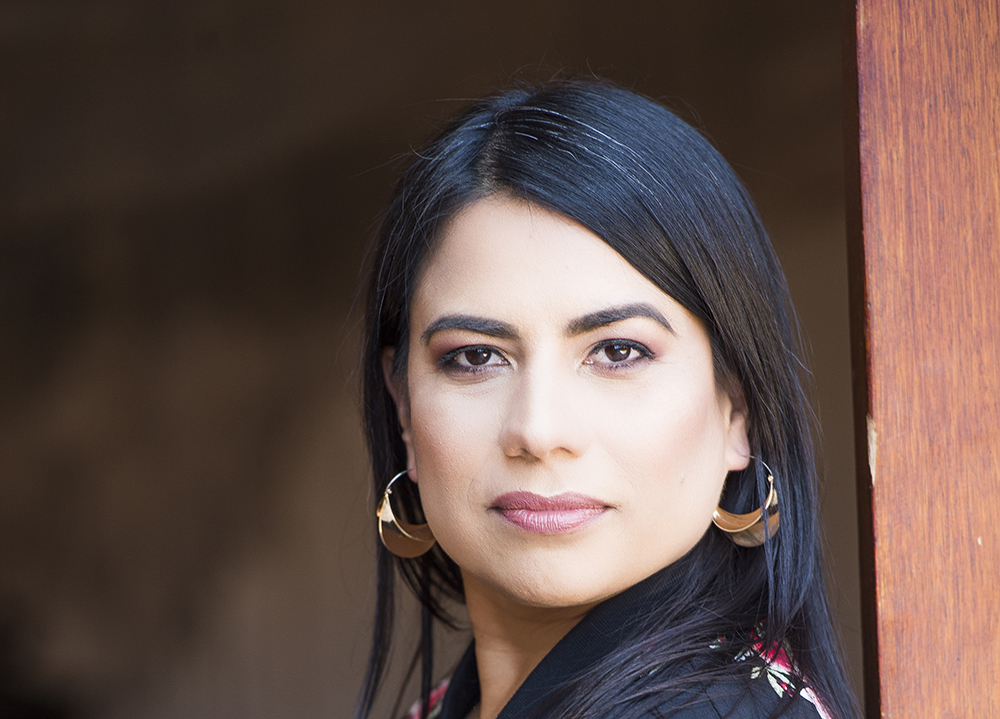Dr Riina Kionka
This Mail & Guardian webinar was sponsored by the European Union. It featured as its guest speakers Dr Riina Kionka, Ambassador of the Delegation of the European Union to the Republic of South Africa; Yasmin Masithela, Head of Transactional Banking, Absa Corporate and Investment Banking; Busi Sibeko, an economist and researcher at the Institute for Economic Justice; Lindi Dlamini, CEO of the Gender-Based Violence Response Fund; and Anele Siswane, Clinical Psychologist. It was moderated by Marcelle Gordon, Anchor on TV news channel eNCA.
Marcelle Gordon introduced the webinar, and asked Dr Riina Kionka why gender equity is so important?
Dr Riina Kionka: It creates a better sharing of responsibilities, as women have been relied upon to care for children, the sick and elderly, but without being compensated for their time and effort. Women on average carry from two-and-a-half to 10 times more household responsibilities than men do. For every minute that women spend on unpaid care work (UCW) costs her a minute of remunerative work, which ends up impacting on their careers, and inevitably on things like their pensions.
Why is a giant like Absa becoming aware of what women face every day at home?
 Yasmin Masithela
Yasmin MasithelaYasmin Masithela: The Covid-19 pandemic has amplified pre-existing gender gaps, and women were more involved in managing the pandemic itself. The double burden of caring for the sick and having to earn an income has been a setback for gender parity, and some sectors will take longer to recover than others. Much more work must be done by corporate leaders to bridge the gap, because it has widened. The primary caregiver role of women hasn’t changed.
You wrote a piece for New Frame on women and economics, please tell us more about it?
Busi Sibeko: Economies are decisions about how we produce and how we socially reproduce ourselves as a society. UCW subsidises capitalism; it maintains it, and in South Africa in particular we need to understand this as an economic and social process. Black women as care workers have historically help to reproduce both white and black societies, especially under apartheid. We need to reimagine our society, not just in the workspace, but also in the household.
Gender-based violence (GBV) has dramatically increased since lockdown; what were the realities of women stuck at home?
Lindi Dlamini: The recent pandemic has worsened the situation of the original pandemic of GBV. Those responsible for looking after children had their burden increased, as they were not at school; many women also lost their jobs, and without their economic freedom, this often exacerbated their domestic violence situation.
 Busi Sibeko
Busi SibekoWhat is the psychological impact of unpaid labour?
Anele Siswana: It takes a lot of psychological resources to maintain UCW, which has many repercussions. How can we capacitate and engage these women, who are often suffering from emotional fatigue?
Yes, there is often a cycle of being unable to afford tertiary education, then not finding work, then having a baby on top of that for young South African women. The latest Stats SA quarterly report has just come out, which revealed that 41% of black women are unemployed. On top of that they spend on average an hour-and-a-half on maintaining the home and about four hours a day on helping their children.
Sibeko: In addition to the fact that women find it difficult to find work because of the UCW they do, there was a study recently that indicates that unpaid care work could be valued at over a quarter of our GDP. How do we compensate for that work, which is critical to maintaining our economy?
How do we put value to UCW?
Masithela: It is extremely difficult to quantify the UCW that women do, and, as many women are in the informal sector, the question becomes, how do you measure this kind of experience? In the financial services sector we are thinking about: how do we advance women into managerial positions, and how do we ensure gender parity? A lot of our work since lockdown is now focusing on mental health, as many people are working 12 to 16 hours a day. Work etiquette has also become an issue, because some colleagues continue to contact others, even in the evenings. We must somehow unlock funding for UCW.
 Anele Siswane
Anele SiswaneIn traditional households, men often believe that if they are the breadwinner, this has more value than UCW. What are you finding with regard to this?
Dlamini: A lot of women are doing UCW and they are also in employment. One in three women in South Africa are survivors of domestic violence, and our femicide rate is five times the global average. What is the opportunity cost to the economy, of women who are doing all the UCW? The economy needs women for it to grow. Our fund supports the growth of women in the workplace, so they can become more economically independent. The “traditional” situation of the man being the breadwinner and the woman the caregiver often gives rise to women not having a voice. Economic independence gives women a voice and enables them to leave the home if they wish to because of abuse.
Sibeko: Violence, particularly gendered violence, is linked to the political economy and the market, in its very structures. KPMG has also released a study on what domestic violence costs the economy.
Dlamini: Yes, and it has a huge impact on children too: violence begets violence. Domestic violence costs the economy a lot in terms of absenteeism, and it is very difficult to advance your career if you are a victim of domestic violence.
 Lindi Dlamini
Lindi DlaminiSiswane: Why are men perpetuating their gender stereotypes? They expect so much of women: to do UCW, work, and still be a responsive wife. We are extremely limited by our gender constructs. There is very little support for those suffering from the emotional impacts of UCW and GBV, especially for rural women.
How is UCW valued in Europe, Riina?
Kionka: There is a lot of focus on getting women into better jobs, so there is more financial equality. There is also support in terms of mental health, and for those dealing with a lot of UCW, such as childcare and care for the elderly. In South Africa we try to focus on building infrastructure, so that more homes have basic services like electricity, to help mothers.
Dlamini: There must be more support for women and children; children need stimulation at an early age, without which, kids tend to drop out of school. So this support must be at a policy level.
Here’s a question from the audience: how can women be better supported in the workplace?
Sibeko: There must be a radical redistribution of care; we talk about a “care diamond” — what is the role of the state, the markets, the household and the community? I would caution against the rapid privatisation of care work. UCW must be compensated for and valued.
Masithela: A policy change at a fundamental and legislative level is required. Boards must ensure that women are in positions of power and that they are being progressed; women often end up sitting at a junior level in the workplace. Women are the majority in most countries, but the people making policy are usually men, which doesn’t make sense. Companies with more women tend to make more money, studies have shown. The school dropout rate is affected by the fact that girls often have to care for other children.
There is a question here: what financial services could be offered to women, to help ease the double or triple burden of UCW?
Masithela: We have some funding models for women entrepreneurs, because many financial models are outdated and traditional. The financial sector must be more deliberate in funding women, as we were with BBBE, otherwise we will perpetuate the financial cycle.
Should we start with more acknowledgement of UWC, at a grassroots level?
Sibeko: At a local level, what we really need from municipalities is provision of basic services. The state is cutting budgets, for services and schools; the provision of basic services is a feminist concern.
 Marcelle Gordon
Marcelle GordonWhat role do gender stereotypes play in the household concerning UWC?
Dlamini: We have to come to a different view of what a woman is and does in society. UCW is critical for the development of complete people. UCW benefits the capitalist system. To unpack and acknowledge the real value of UCW means to dislodge the male privilege associated with it.
How can we break this cycle, so we don’t have this conversation again and again?
Siswane: We need to consider alternative forms of gender constructs, such as positive masculinity. UCW is centred on gender constructs and cultural traditions. These are old and entrenched, but we need to decolonise UCW and GBV. Men wish to control: finances, women, themselves. We need to reimagine gender.
Gordon ended the webinar by thanking the speakers and sponsors.